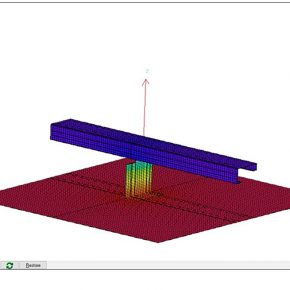
Virgin or recycled plastic? – Delta look at what is best for the waterproof membrane industry?
Delta Membranes have analysed the immense focus on sustainability and renewable resources, which is believed to have made it hard to fathom why any products are made from virgin material.
The difference between ‘virgin’ and ‘recycled’ plastics is that virgin is the direct resin produced from a petrochemical feedstock, such as natural gas or crude oil, which has never been used or processed before, whilst recycled is means a material has been reclaimed after it has left the hands of the consumer (i.e. a plastic milk container, detergent bottle or oil bottles).
Once used, the plastic container is taken to a facility where it is washed, reground and pelletised into a new post-consumer material.
Post-Industrial is recycled plastic that never left the manufacturing floor. For efficiency, manufacturers try to achieve zero waste during the production process.
Which process is the cleanest for manufacturing waterproof membranes?
Neither post-consumer nor post-industrial recycled materials can achieve 100% of the mechanical properties of virgin materials. The quality of these recycled materials has a direct long-term life prediction (with some membranes made from recycled material only having a 5-year life prediction (according to EN 13252)).
Delta MS 500, MS 20, PT and FM are made from virgin High-Density Polyethylene (HDPE), with the company’s tested service life being over 100 years! Membranes made from recycled materials will also have a lower safety and strength rating.
Virgin HDPE membranes also offer a higher resistance to oxidation. The presence of virgin resin significantly improves the durability of dimpled membrane sheets with observed ratios in the range of 2 to 20 (depending on the tested materials).
Plastic has a memory, which is the ability of some plastics to return to their original form when heated or hot.
Surprisingly, post-consumer is the least ‘clean’ of the three methods listed above for manufacturing waterproof membranes, because of the variability of the feedstock.
Not to say, recycled plastics cannot be used in various other applications, but does give an explanation as to why recycled materials have lower safety & strength ratings and life prediction.
The sustainability equation
It is tempting to believe if something is recycled it is more sustainable than something made from virgin material. Sometimes this is the case, but not always.
Manufacturing
Every manufacturer should manufacture products through economically-sound processes that minimize negative environmental impacts whilst conserving energy and natural resources.
Material efficiency: Year after year, Delta manage to keep its material efficiency below the target of 1,05 t/d.
Waste efficiency: Year after Year, Delta have managed a constant reduction of waste (special programmes such as its ‘lean office’ campaign).
When a recycled resin that can achieve the same quality of life prediction is available – Delta be first in line. Until then, it will continue following the EMAS (EU Eco-Management and Audit Scheme) to evaluate, report, and improve our environmental performance, whilst choosing the right resin to achieve the most minimal and robust design with the least amount of material waste.
Delta Membrane Systems,
Delta House,
Merlin Way,
North Weald,
Epping,
Essex,
CM16 6HR
United Kingdom
Visit Delta Membrane Systems' website
Visit Supplier's page
Latest news

26th July 2024
Enfield Speciality Doors completes world-class project for Atlas Copco HQ
A rundown office and warehouse building completely transformed into a modern headquarters for Atlas Copco has been fitted with more than 120 internal fire doors from Enfield Speciality Doors.
Posted in Access Control & Door Entry Systems, Articles, Building Industry News, Building Products & Structures, Building Systems, Case Studies, Doors, Interior Design & Construction, Interiors, Posts, Restoration & Refurbishment, Retrofit & Renovation, Security and Fire Protection, Sustainability & Energy Efficiency, Timber Buildings and Timber Products, Wooden products
26th July 2024
Abloy UK launches new white paper
Abloy UK, a leading provider of security and access control solutions, has launched a new white paper.
Posted in Access Control & Door Entry Systems, Architectural Ironmongery, Articles, Building Industry News, Building Products & Structures, Building Services, Doors, Facility Management & Building Services, Health & Safety, Information Technology, Innovations & New Products, Publications, Research & Materials Testing, Security and Fire Protection
26th July 2024
MCRMA Member Profile: David Roy, Director of Roofconsult
David Roy of MCRMA member company Roofconsult has more than 50 years’ experience to draw upon working in the building envelope sector and a unique perspective on how it has changed in that time.
Posted in Articles, BIM, Infrastructure & CAD Software, Building Associations & Institutes, Building Industry News, Building Products & Structures, Building Services, Building Systems, Cladding, Information Technology, Restoration & Refurbishment, Retrofit & Renovation, Roofs, Walls
26th July 2024
Strand: Enhancing Door Functionality and Safety
Craig Fox, Sales Director for Strand Hardware, outlines how door industry professionals might apply door limiting stays…
Posted in Architectural Ironmongery, Articles, Building Industry News, Building Products & Structures, Building Services, Doors, Facility Management & Building Services, Health & Safety, Restoration & Refurbishment, Retrofit & Renovation
 Sign up:
Sign up: